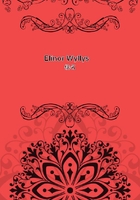
第204章
Harry was the last to leave the spot. While the funeral train returned with the mourners to the house of Mr. Joseph Hubbard, he remained standing by the grave of his friend, his mind filled with the recollection of the brilliant hopes so suddenly extinguished, the warm fancies so suddenly chilled, the bright dreams so suddenly blighted by the cold hand of death. The solemn truth, that the shadow of death had also passed over himself was not forgotten; life in its true character, with all its real value, all its uncertainties, all its responsibilities, rose more clearly revealed to him than it had ever yet done; he turned from Charlie's grave a wiser man, carrying with him, in the recollection of his own unexpected restoration, an impulse for higher and more steadfast exertion in the discharge of duty.
But if Hazlehurst's thoughts, as he retraced his solitary way towards Wyllys-Roof, were partly sad, they were not all gloomy.
Wisdom does not lessen our enjoyment of one real blessing of life; she merely teaches us to distinguish the false from the true, and she even increases our happiness amid the evils and sorrows against which we are warned, by purifying our pleasures, and giving life and strength to every better thought and feeling.
When Harry entered the gate of Wyllys-Roof, his heart beat with joy again, as he saw Elinor, now his betrothed wife, awaiting his return on the piazza; he joined her, and they had a long conversation together in the fullness of confidence and affection. They were at length interrupted by Miss Agnes, who returned from the Hubbards'. The young people inquired particularly after Miss Patsey.
"She is much more calm than she was yesterday; more like herself, more resigned, thinking again of others, attending to Mrs. Hubbard; she seems already to have found some consoling thoughts."
"It seems, indeed," said Harry, "as if Hubbard's memory would furnish consolation to his friends by the very greatness of their loss; his character, his conduct, were always so excellent; the best consolation for Miss Patsey."
"It is touching to see that excellent woman's deep affection for one, so different from herself in many respects," observed Mr. Wyllys.
"Fraternal affection is a very strong tie," said Miss Agnes gently.
She might have added that it is one of the most honourable to the human heart, as it is peculiar to our race. Other natural affections, even the best, may be partially traced among the inferior beings of creation; something of the conjugal, paternal, and filial attachment may be roused for a moment in most living creatures; but fraternal affection is known to man alone, and would seem in its perfect disinterestedness, almost worthy to pass unchanged to a higher sphere.
"I have often thought," said Mr. Wyllys, "that the affection of an unmarried sister for a brother or a sister, whose chief interests and affections belong by right to another, if not the most tender, is surely the most purely disinterested and generous which the human heart can know: and single women probably feel the tie more strongly than others."
Mr. Wyllys was thinking when he spoke, of his daughter Agnes and Patsey Hubbard; and he might have thought of hundreds of others in the same circumstances, for happily such instances are very common.
"I have never had either brother or sister, but I can well imagine it must be a strong tie," said Elinor.
"I flattered myself I had been a sort of brother to you in old times," said Harry smiling.
"Your romantic, adopted brothers, Nelly, are not good for much," said her grandfather. "We tried the experiment with Harry, and see how it has turned out; it generally proves so, either too much or too little. Don't fancy you know anything about plain, honest, brotherly affection," he added, smiling kindly on his granddaughter, who sat by his side.
Probably Harry was quite as well satisfied with the actual state of things.
"But Charlie was also a son to Miss Patsey," he added, after a moment.
"Yes; he had been almost entirely under her care from an infant," replied Miss Agnes.
"Poor Charlie!--little did I think that bright young head would be laid in the grave before mine!" said Mr. Wyllys.
A moment's pause ensued.
"Much as I loved Hubbard, much as I regret his loss," said Harry, "I shall always think of him with a melancholy pleasure."
"Excepting his loss, there does not seem indeed to be one painful reflection connected with his name," observed Miss Agnes.
"Cherish his memory then among your better recollections," added Mr. Wyllys, to Harry and Elinor. "And an old man can tell you the full value of happy recollections; you will find one day the blessing of such treasures of memory."
"It is a legacy, however, which the good alone can leave their friends," said Miss Agnes.
And so it proved, indeed; after the first severe grief of the sudden bereavement had passed away, the young man was remembered among his friends with a peculiar tenderness, connected with his youth, his genius, his excellent character, his blameless life, and early death. Life had been but a morning to Charlie Hubbard, but it was a glowing summer morning; its hours had not been wasted, abused, misspent; brief as they were, yet in passing they had brought blessings to himself, to his fellow-beings; and they had left to those who loved him the best consolations of memory.